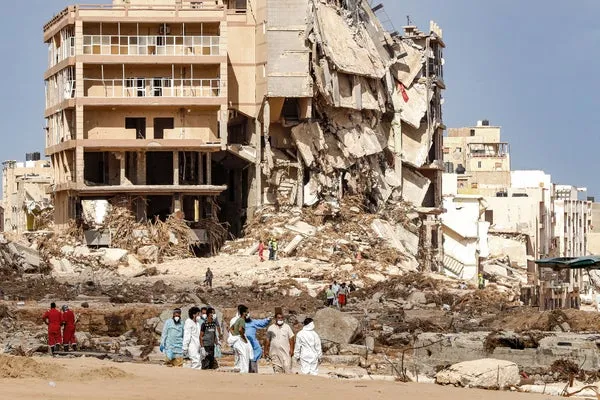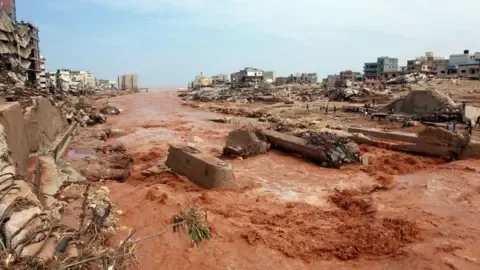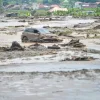After nearly a week of relentless battering across the Mediterranean, Storm Daniel left a trail of destruction in its wake, causing unprecedented floods in Libya that burst dams protecting the port city of Derna. The torrential rains and flash flooding ravaged the city, claiming the lives of at least 2,300 people and leaving an estimated 10,000 missing. “I am not exaggerating when I say that 25% of the city has disappeared,” a government official told Reuters.
As the dust settles on the devastation, questions are being raised about the storm’s immense impact and whether it was intensified by the changing Mediterranean weather patterns brought about by climate breakdown. For months, the region had sweltered under an unprecedented heatwave, with sea surface temperatures soaring to unprecedented levels. Scientists suggest that this heatwave may have encouraged the formation of a Mediterranean tropical-like cyclone, known as a “medicane”.
While it is still unclear whether climate change played a role in intensifying the storm, experts agree that the Mediterranean sea surface temperatures have been unusually warm throughout the summer. This warm water not only fuels storms in terms of rainfall intensity but also makes them more ferocious. Dr. Karsten Haustein, a climate scientist at Leipzig University, notes that the warmer water does not only contribute to the intensity of the storm but also makes it more destructive.
However, the storm itself was not solely responsible for the destruction wrought on Derna. Experts point out that the city’s infrastructure, including the burst dams, was already in a state of disrepair. The city’s infrastructure has been notoriously neglected since Libya’s cities were battered by Nato navies and warplanes supporting a revolt against Muammar Gaddafi, its former longtime ruler, over a decade ago. The country’s oil wealth has not been enough to revive its prosperity, leaving it vulnerable to extreme weather events like Storm Daniel.

Dr. Kevin Collins, a senior lecturer on environment and systems at the Open University, notes that the storm is not just a single cause of the loss of life but also a function of Libya’s limited ability to forecast weather impacts, lack of warning and evacuation systems, and inadequate planning and design standards for infrastructure and cities. As the climate continues to change, understanding, planning for, and adapting to these more extreme types of events will be crucial for individuals, businesses, and communities worldwide.
Prof. Lizzie Kendon, a professor of climate science at the University of Bristol Cabot Institute for the Environment, warns that we can expect the intensity of heavy rainfall to increase as the world warms up. However, she also cautions that extreme events can occur naturally due to the variability of the climate, and care should be taken before linking any specific event to climate change. Storm Daniel serves as a stark reminder of the devastating impact that extreme weather events can have on communities and the importance of preparedness and adaptation in the face of an increasingly unpredictable climate.

